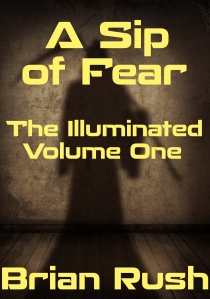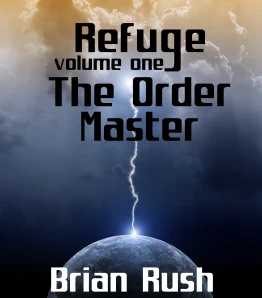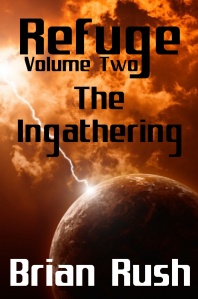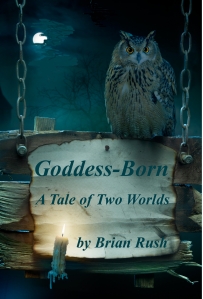Last week’s post was fun, so I think I’ll do the same thing with another passage in the Bible. With respect to the story of the Garden of Eden and the Fall of Man, showing that this is not a literal description of what happened is shooting fish in a barrel, so I’m not going to bother. Any truth to the story of Adam and Eve, the snake, the fruit, and the Fall is mythic truth, not descriptive truth. So I’ll just make passing mention of the fact that the story isn’t literally true, and Darwin was right, and pass on from there to dealing with the story as myth. Because once you have dealt with the fact that we didn’t literally descend from a single couple a few thousand years ago of whom she was made from his rib and they lost immortality by eating a forbidden fruit under the manipulative urging of a talking snake, you have only begun; there is depth to this story and a lot of meaning once you get past the most obvious (and pernicious) misinterpretation.
Here’s the story retold in brief.
Man (the literal translation of “Adam”) and his wife lived an idyllic life in a garden made for them by God, who took care of all their needs. The garden had all kinds of good and pleasant things, but while they lived in it Adam and Eve were complete innocents. They had no knowledge of good and evil. They made no judgments for themselves, but did as God commanded and relied on him for all their moral choices.
God gave them a commandment related to their innocent status. A tree grew in the middle of the garden, the Tree of the Knowledge of Good and Evil. Eating the fruit of this tree would give them moral knowledge and enable them to make moral judgments. God forbade them to eat of the fruit, saying, “If you eat of it, you will surely die.”
Now the serpent was the most cunning of the animals in the garden, and he came to the woman one day and said, “Are you not allowed to eat of all the fruits of the trees in the garden?”
The woman answered, “Yes, we can eat of all of the fruit except for the tree in the middle of the garden. God said that if we eat that, we will die.”
The snake said, “But no. If you eat that fruit, your eyes will be opened and you will become as gods, knowing good and evil and making moral judgment for yourself. God doesn’t want you to have that knowledge and that’s why he forbade the fruit. You won’t die. You’ll become gods yourselves!”
Well, Eve liked that idea and picked the fruit and saw that it was good to eat and that it would give knowledge of good and evil, and being persuaded, she took a bite of the fruit. She took it to Adam and persuaded him to take a bite, too. Immediately they made a moral judgment that they shouldn’t be walking around naked (well, no promises were made as to quality of judgment) and clothed themselves, and by this sign God figured out that they had disobeyed his command.
Having done so, and having gained the ability to make moral judgments of their own, the man and the woman were not allowed to stay in the garden any longer and pick fruit from the trees, but had to earn their food by working, and eventually return to the Earth in death.
That’s the story in a nutshell, and there are many layers of meaning here. It’s absolutely packed! It has to do in part with the transition from hunting and gathering to farming and civilized life. On another level, it relates to the human ability to make moral judgments rather than simply being told what to do by authority. It relates to mortality and the loss of innocence, which carries with it the awareness of death. Now, here’s the biggest single secret contained in this story:
The “Fall” of Man was not a fall at all!
On the contrary, it was the beginning of a rise, the emergence of humanity from animal nature, and everything specifically human flows from this mythic event. (Which, again, did not literally take place. Don’t get sidetracked here.) Both God and the serpent made predictions as to what would happen if Adam and Eve ate the fruit and gained the knowledge of good and evil. God said, “You are free to eat from any tree in the garden; but you must not eat from the tree of the knowledge of good and evil, for when you eat from it you will certainly die.” (Genesis 2:16-17.)
The serpent predicted: “You will not certainly die, for God knows that when you eat from it your eyes will be opened, and you will be like God, knowing good and evil.” (Genesis 3:4-5.)
The interesting thing is that both of these predictions came true. When they gained the knowledge of good and evil, they became mortal (or became aware of their mortality). But at the same time, their eyes were indeed opened, and they became like God, knowing good and evil. Indeed, God confirmed this: “The man has now become like one of us, knowing good and evil. He must not be allowed to reach out his hand and take also from the tree of life and eat, and live forever.” (Genesis 3:21.) I note in passing the implicit polytheism. But that’s not the subject of this post, so I’ll pass on.
As with all myths, there are an infinite number of possible interpretations to this one, but I see two main levels where it applies, one collective and the other individual.
Dawn of Civilization
On a collective level, the story of the Fall is about the beginning of civilized life. For most of the time that our species was on the planet, we lived like animals according to our instincts. We traveled in small bands, hunting and foraging for food rather than farming or herding, and living a simple life without nearly as much hard work to it as would afflict us in civilized times. It was in many ways an idyllic existence and the Garden of Eden is a fair mythic depiction of it. The story of the Fall reflects the loss of this pre-civilized lifestyle in such language as this:
“Cursed is the ground because of you;
through painful toil you will eat food from it
all the days of your life.
It will produce thorns and thistles for you,
and you will eat the plants of the field.
By the sweat of your brow
you will eat your food
until you return to the ground,
since from it you were taken;
for dust you are
and to dust you will return.”
(Genesis 3:17-19.)
Personal Awakening: Start of the Journey
The more important interpretation, however, is individual rather than collective. The Fall of Man happens in mythic time, which means it is not a single historical event but something that pervades all of time and is reenacted repeatedly. For each of us, it is the beginning of the journey, the first step on the path to self-awareness, awakening, and enlightenment. The Fall is not an error. It is necessary.
What exactly is involved in “the knowledge of good and evil”? This does not refer to factual knowledge or the kind of question we can use the scientific method to answer objectively, but to moral knowledge, the kind of question that relates to value rather than fact, and that can be answered only by an assertion of the will, a decision, a judgment. A creature without the knowledge of good and evil makes no moral judgments. Either he accepts everything reality offers without discrimination between what is desirable and what is undesirable, or else he defers all such judgments to an authority and assumes no responsibility for them himself. And of course, the authority’s first command is to do exactly that: make no moral judgments. Do not eat of the fruit in the middle of the garden. Do not gain the knowledge of good and evil. Leave all that to me.
To disobey this command is the first step on the Great Path. To make judgments of value for oneself is to assume the role to which we are entitled. The consequences are hard, because one must also face the possibility of error and live with the outcome, rather than letting another shoulder that responsibility. It means facing one’s own fallibility and, in a metaphorical (or sometimes literal) sense, one’s own mortality. Having eaten of the fruit of the knowledge of good and evil, it is a long, hard journey to reach a point where this dichotomy can be transcended and, identifying with the Cosmos in mystical perception, achieve that higher octave of innocence. From the innocence of ignorance, through the burden of judgment and individual awareness, to the innocence of full understanding, that’s the journey of enlightenment (in one metaphorical conception), and there is no way to pole-vault from one state of innocence to the other; one must navigate the maze in between.







